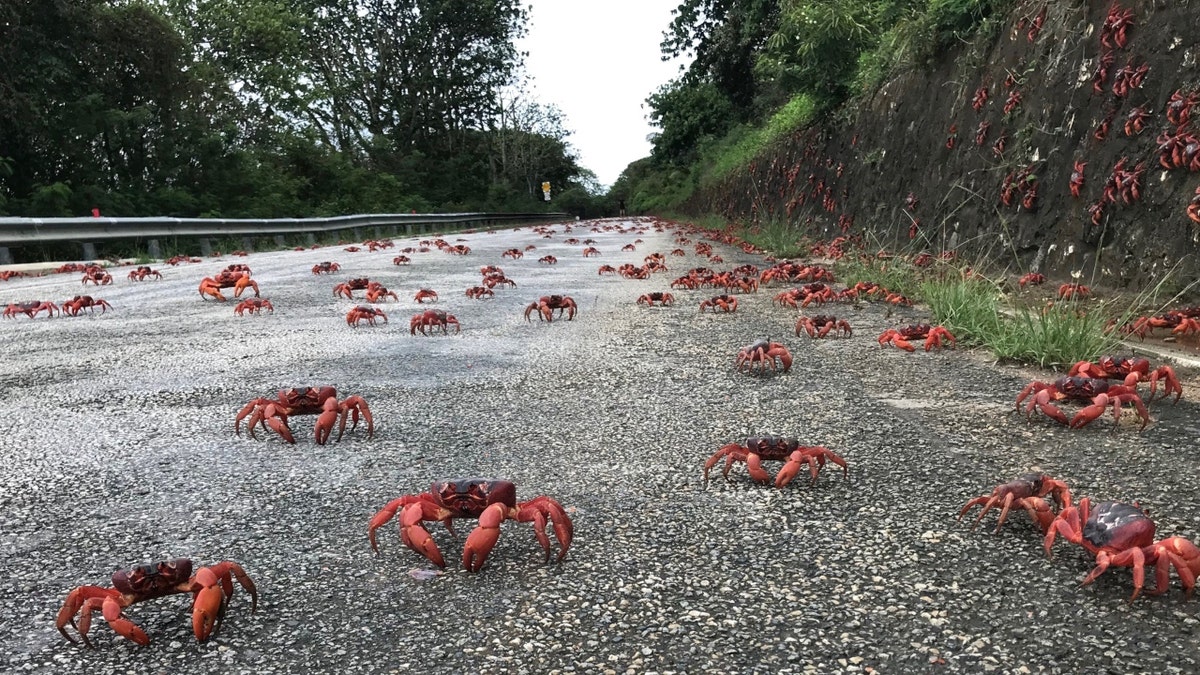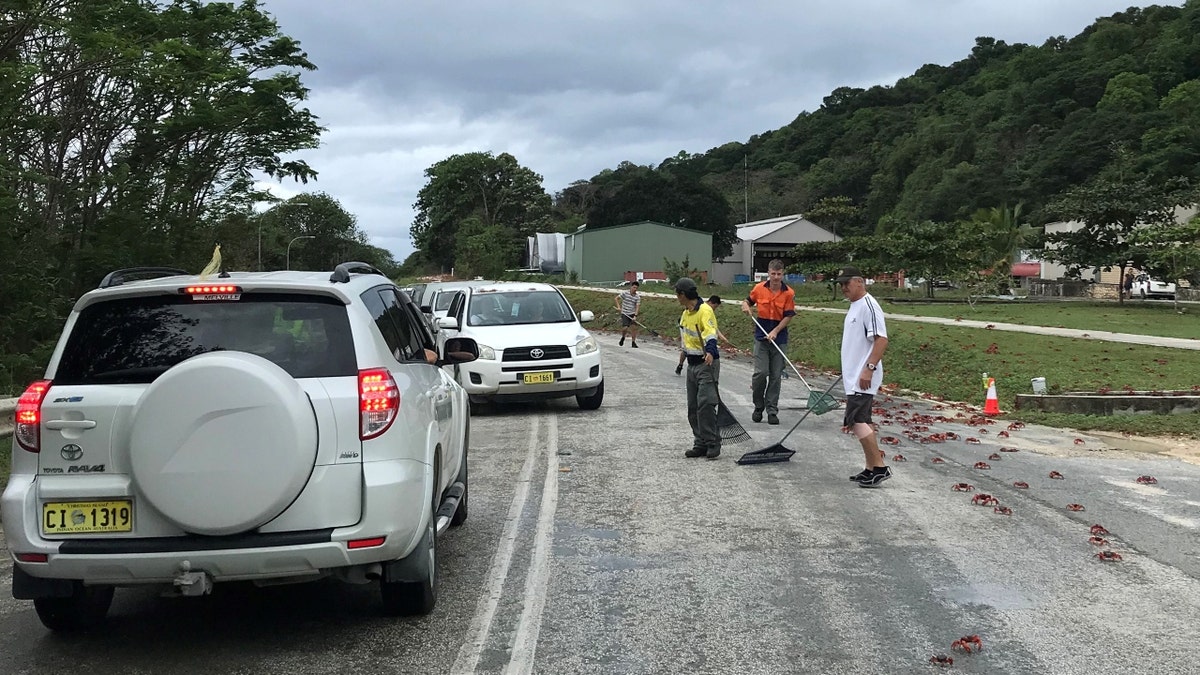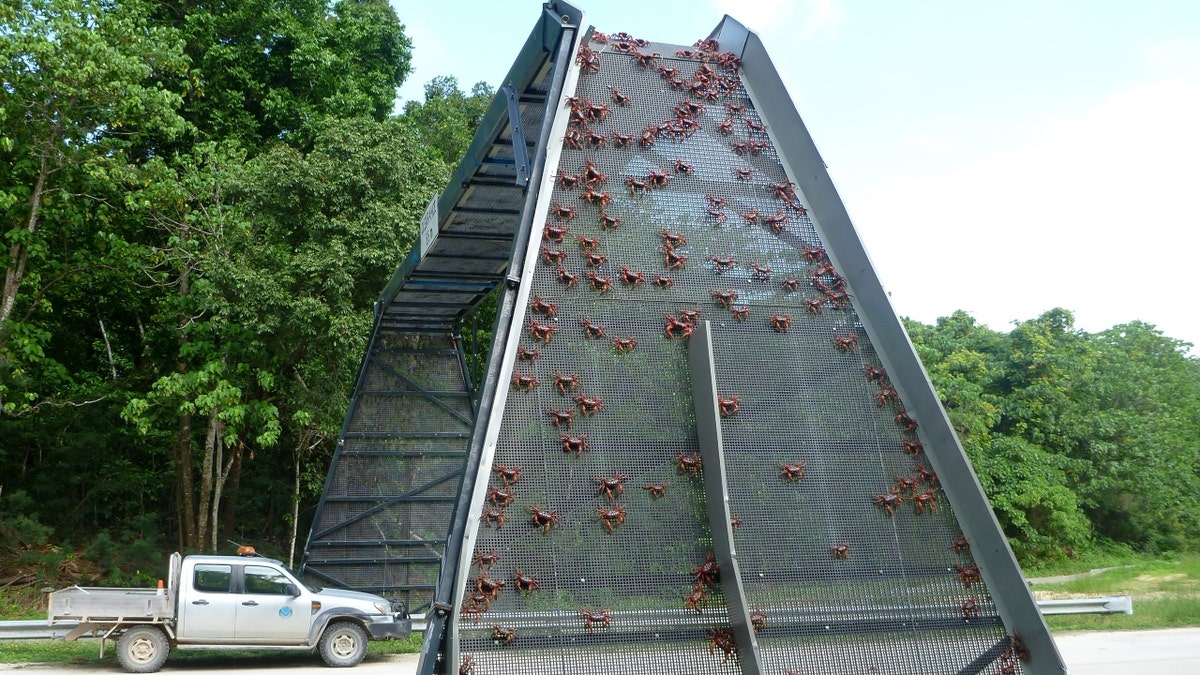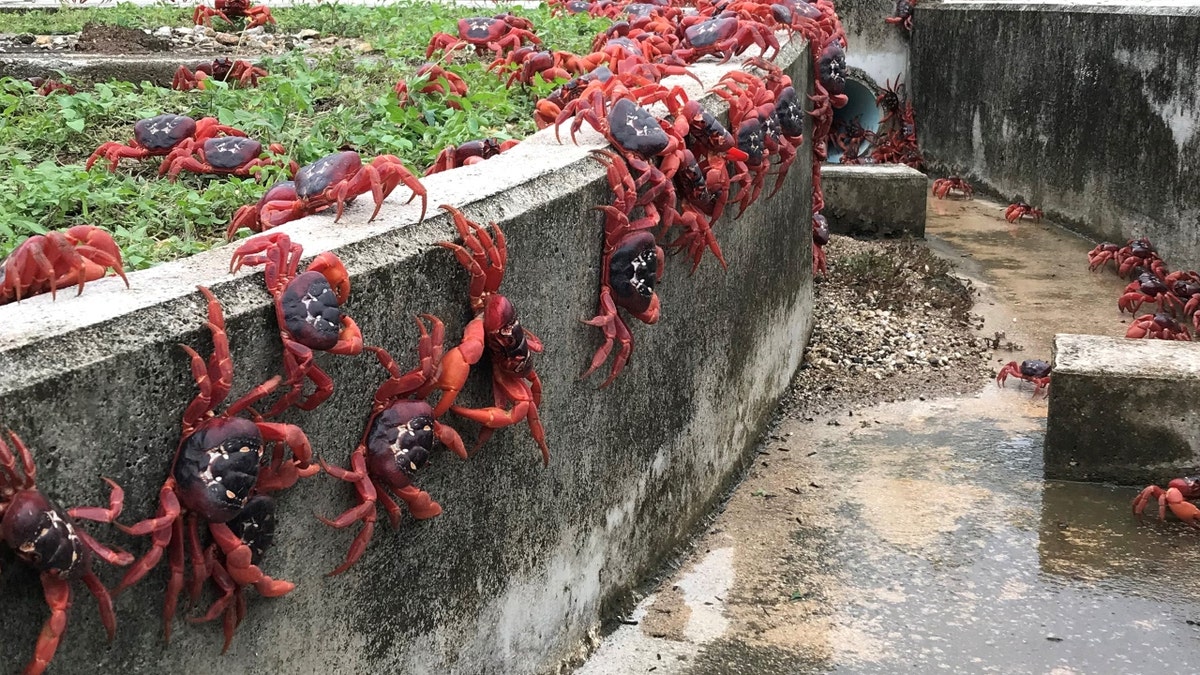Red crabs begin migration on Australia's Christmas Island
Millions of red crabs make their way across the island to the ocean each year
Red crab migration season has begun on Australia's Christmas Island.
In footage filmed by David Watchorn this past weekend, the crustaceans scuttle over roadways and infrastructure.
According to Parks Australia, every year millions of the large crabs emerge from the forest heading to the water to breed. The migration starts with the first rainfall of the wet season.
While that's usually in October or November, it can sometimes be as late as January.
PHOTOS THAT STUN: 23 AMAZING PIX OF OUR LIVING WORLD FROM NIKON'S MICROSCOPY COMPETITION

In this handout image provided by Parks Australia, thousands of red crabs are seen walking on a road on Nov. 23, 2021, in Christmas Island. The annual migration of red crabs begins with first rains of the wet season on Christmas Island, usually around October or November. Millions of the red crabs make their way across the island to the ocean to mate and spawn. ((Photo by Parks Australia via Getty Images ))
The exact timing and the speed of the migration are determined by the phase of the moon.
Male crabs that lead the migration are later joined by females.

In this handout image provided by Parks Australia, members of the public and Parks Australia staff rack away thousands of red crabs off a road on November 23, 2021, in Christmas Island. ((Photo by Parks Australia via Getty Images ))
If it begins to rain too late to make their spawning date, some crabs will migrate the following month.
Once at the shore, the crabs take a dip to replenish moisture before the male crabs retreat to the lower terraces of the island to dig burrows.
KNIFE-WIELDING MAN FIGHTS OFF CROCODILE THAT HAD HIS FRIEND'S HEAD IN A VISE-GRIP: REPORT

In this handout image provided by Parks Australia, thousands of red crabs are seen walking over a crab bridge on November 23, 2021, in Christmas Island. ((Photo by Parks Australia via Getty Images ))
The female crabs then join the males on the terraces to mate in or near the burrows.
Each female crab, which remains in the burrow for over two weeks, can produce up to 100,000 eggs.

In this handout image provided by Parks Australia, thousands of red crabs are seen walking in a drain on November 23, 2021, in Christmas Island. ((Photo by Parks Australia via Getty Images ))
Male crabs will take a second dip before starting the journey back home.
When the moon reaches its last quarter, the crabs gather on the shoreline, releasing their eggs in the water.
CLICK HERE TO GET THE FOX NEWS APP
Red crab larvae hatch from the eggs as soon as they make contact with the water.
The red crab migration is Christmas Island’s biggest tourist attraction.










































